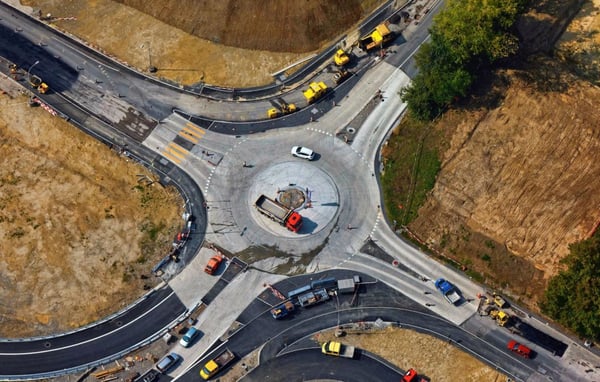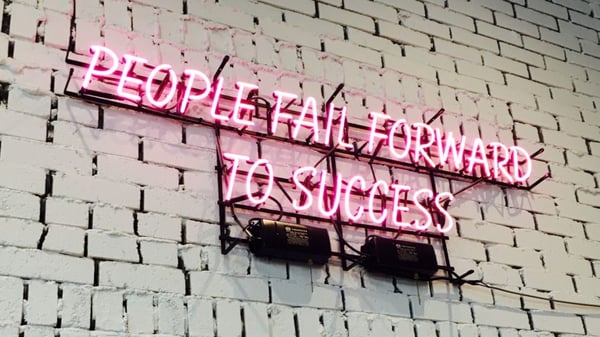How to Make Innovation Successful in Your Community
By NRC on January 29, 2019

- By Tom Miller -
Although innovation with local government projects may not always yield hypothesized results, the consequences of acting upon pure assumptions may be far worse. Experiments reveal which actions work and which actions do not. Experiments can pinpoint areas for improvement before a policy hits the road. While the benefits of experimentation on quality of life are extensive, when the process alters resident daily routines, there is a wrong way to go about this research. Before testing ideas within your own community, here are the top ten things you need to know for your “Learning Lab” to be successful.
Ten Steps to Creating a Successful Community Learning Lab
1. Engage Residents Before Experimenting
Engage residents before adopting an experimental ethos. Make sure that residents are on-board in principle with experimentation. Without public knowledge or support, any experiment you run may catch backlash. Start by explaining to residents what you aim to achieve and how the experiment will help the community.
2.Identify Local Government Projects that Improve Quality of Life
Identify projects/programs for experimentation that are important to community quality of life. At the same time, support the research and outcomes with genuine neutrality. Your residents know better than anyone what they want in their community. A representative community survey is a reliable way to ask your residents what they think and to identify which aspects of community livability are the best candidates for experimentation.

3. Gather Support for Specific Experiments
Gather support for specific experiments that will affect a large percent of the population. Make sure residents are on-board with each large specific experiment. Spelling out the measures you are about to take minimizes confusion, shock and negative response from residents. Giving them the chance to send feedback on the experiment helps promote a healthy relationship with the local government organization. Community members will appreciate communication regarding any changes that will affect their daily lives.
4. Hire Based on Assessment Design and Research Methods
Hire staff or consultants who specialize not in specific content areas (transportation, housing, libraries) but in evaluation, assessment design, statistics and social science research methods. Having accurate, comprehensive and useful information to take action on is what experimentation is all about. With the right team, you can improve any number of local government initiatives within any department.

5. Measure Performance and All Effects
Always include measures of unintended side effects with measures of intended effects and invite residents to identify key measures of impact. Feedback from the people who are most affected provides some of the best insights into experimental outcomes and what directions to take next. Long-term projects, especially, benefit from repeated performance measurements to examine trends and determine levels of success over time.
6. Announce Duration and Methods
Publicize the duration and methods of the experimental program/policy, the criteria for determining success or failure and the design of the evaluation well in advance of the start of the research. It is important to give your residents a deeper understanding of what to expect from the project, and why it’s been initiated in the first place. If your city is experimenting with locations to build a new recreation center, for example, residents should be informed of preliminary plans and budgets, key dates, how to give feedback, as well as practical notifications such as upcoming road closures.
7. Give Regular Updates
Keep stakeholders informed about findings with regular updates of interim outcomes. These continuous updates help the project stay on track. Sharing results, phases and next steps keeps all involved parties on the same page, allowing a smoother operation. And if the tax-paying public is going to support a local government project, they should rightfully know what’s happening during each phase.
8. Engage Residents as Partners
Engage residents in reviewing the findings and informing the decision about whether the experiment worked or failed. Surveys, forums and focus groups are all potential platforms to consider for asking residents to share their thoughts and participate in the decision-making process.
9. Be Willing to Risk Failure and Move On
Be prepared to declare a victory for experimentation when results show program/policy failure; do not linger in ending a program or policy that does not work. The purpose of experimentation is not to be correct, but to learn what does and does not work for your community. Also, don’t let the risk of failure deter you from experimenting altogether.

10. Follow Trends to Learn More
Do not assume findings now will be the same as findings in the years to come. Identify metrics that can be monitored over time to keep track of changes. These trend data can clue you into areas that need improvement, program performance over time and how your population may be changing. Conducting a community survey annually or once every couple years will yield the data needed to establish a trend line and examine the impacts of programs and initiatives as they evolve. In the end, those survey results will be what most reliably informs the best actions for your jurisdiction to take.
Related:
Popular posts
Sign-up for Updates
You May Also Like
These Related Stories

What If You Knew The Questions That Could Change Everything for Your Community

Using Community Feedback to Inform Priority Based Budgeting

